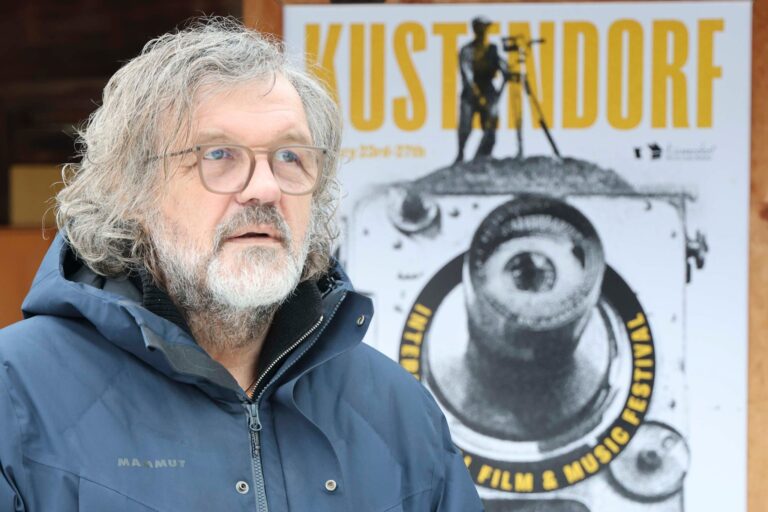
The Küstendorf Film and Music Festival is the film event created by the well-known filmmaker and professor, Emir Nemanja Kusturica, organised by the production company Rasta International, with the support of the Ministry of Culture of the Republic of Serbia.
Emir Kusturica, as a cineaste is largely acclaimed for his films that tackle political struggle with reveries of unyielding optimism. His most acclaimed feature films include When Father Was Away on Business and Underground, that won him the Palme d’Or at the Cannes Film Festival; Arizona Dream awarded with a Silver Bear at the Berlin Film Festival; as well as Black Cat, White Cat that won a Silver Lion at the Venice Film Festival. The multi-hyphenated artist is also a musician, who enjoys touring with his The No Smoking Orchestra to perform traditional folk music.
All his talents have merged in the kermesse of Küstendorf. The name means ‘City of the Arts’ in German, and was suggested to Kusturica by his friend, screenwriter and playwright Peter Handke, who attended the first edition. It is utterly fitting since it’s also a word play on German ‘dorf’ (village) and Kusturica’s nickname, ‘Kusta.’
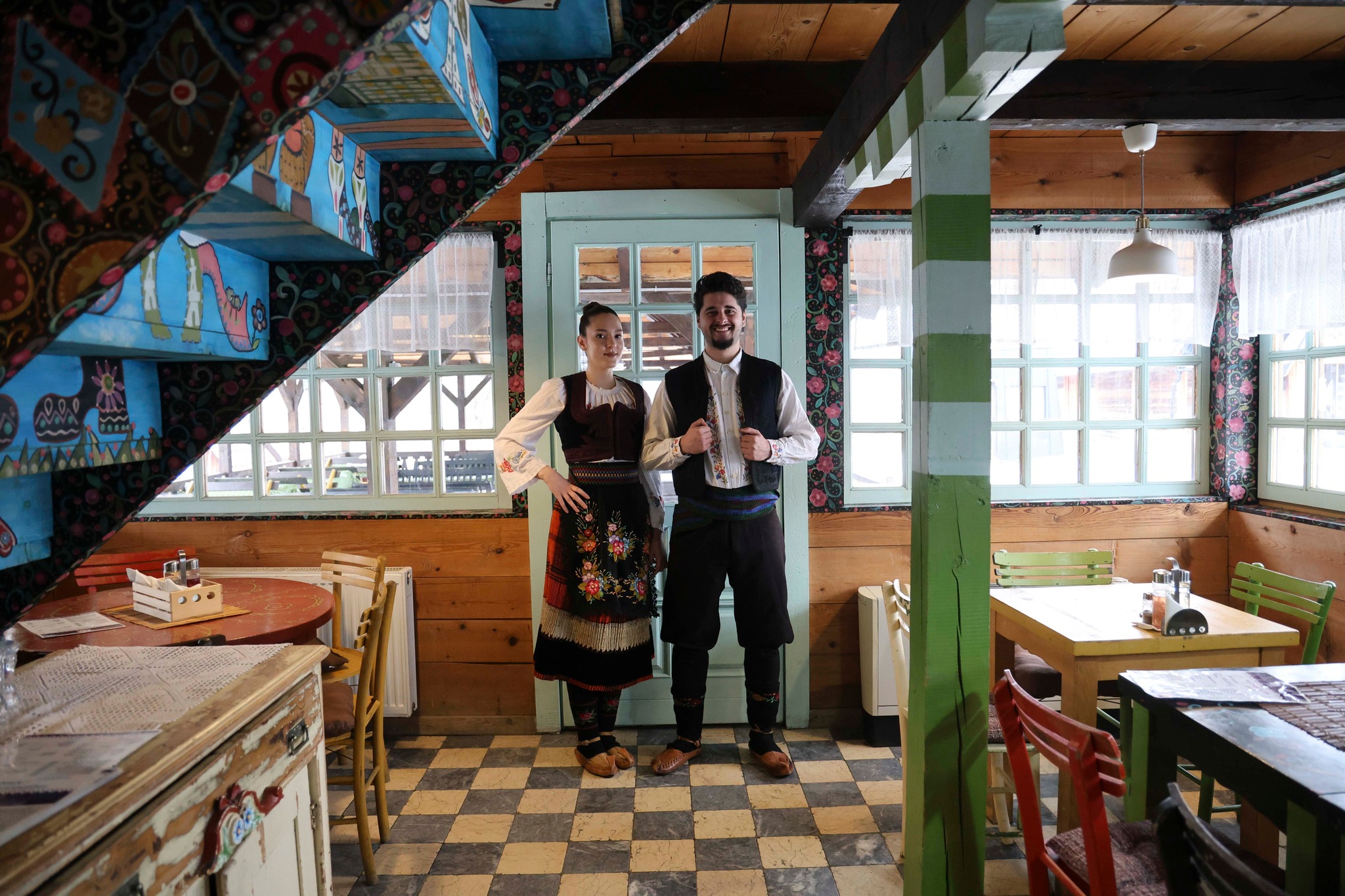
The extraordinary trait about this cinematic gathering is the setting and how it came to life, that attest how the Bosnian-bon Serbian film director-screenwriter-actor-producer-musician is also a town-builder. It is in Serbia, that the one of the most-distinguished European filmmakers created a little town out of nowhere to provide jobs for locals. The fairytale village of Drvengrad (Timber Town) is the one that he initially created for his film Life Is A Miracle, for which he received the Philippe Rotthier European Architecture Award from the Brussels Foundation for Architecture. In fact all the constructions of the ‘City of Trees’ are made out of wood.
The town is articulated with streets named after individuals that the director holds dear, such as Nikola Tesla, Ernesto ‘Che’ Guevara, Diego Maradona, Federico Fellini, Ingmar Bergman and many more. There is also a library, named after Ivo Andrić and an artist gallery named Macola in honour of sculptor Dragan Jovićević (it was previously known as Anika, after a character from Andrić’s prose). Drvengrad has all the elements a town needs: a sports hall, a restaurant, a cake shop, cinema-halls such as the Stanley Kubrick Theater and the Damned Yard Theater, and even a souvenir shop. Besides the main house, and other surrounding residences in the main communal buildings there is even an indoor swimming pool. But the real treat is the Serbian-Orthodox Church dedicated to Holy Sava, and if some festival editions coincide with Serbian New Year visitors have the chance to admire the orthodox celebrations.
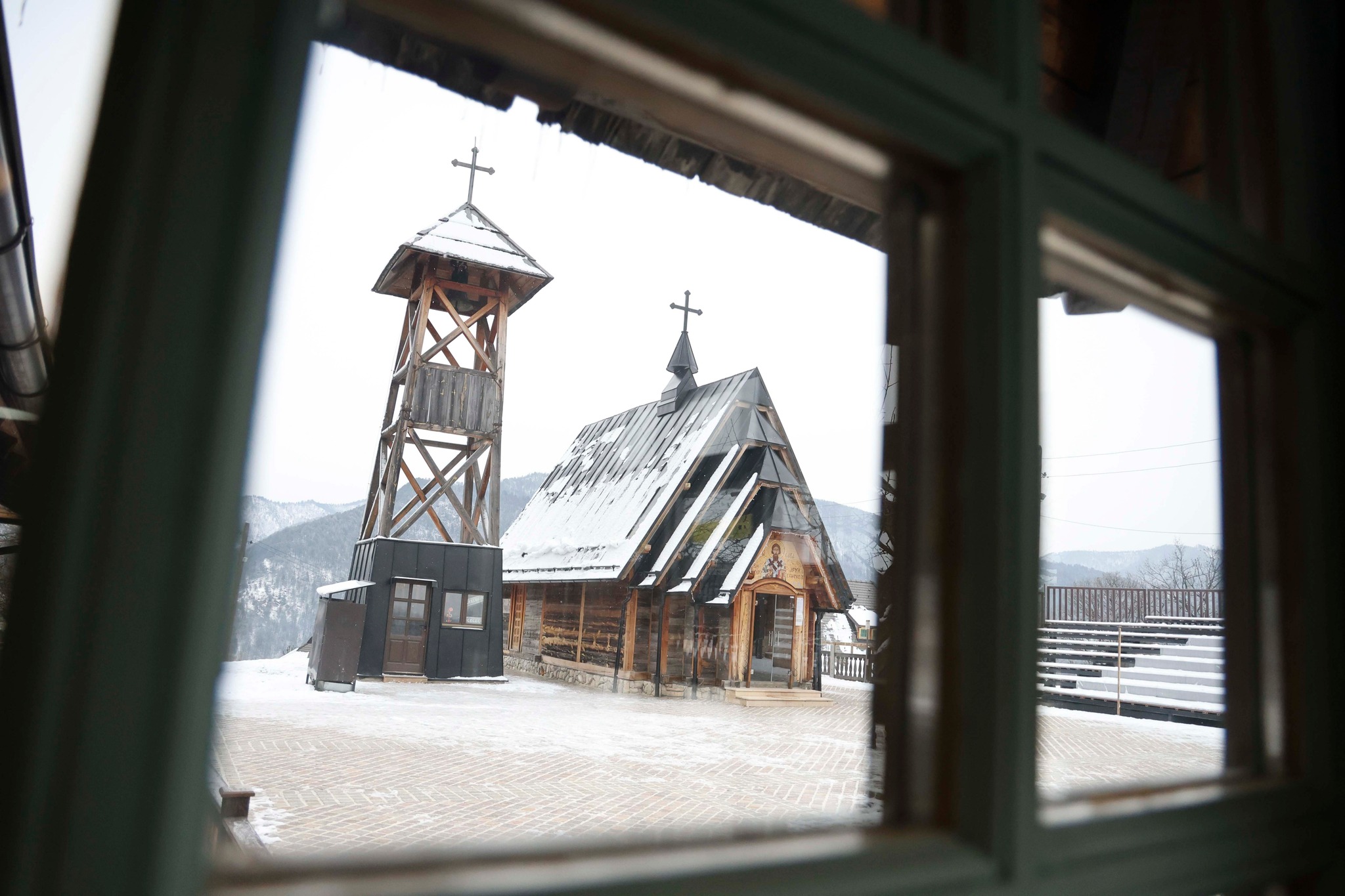
Drvengrad is located on Mećavnik hill in the Mokra Gora nature park, the meeting point of the beautiful mountains Tara and Zlatibor. The ethno-village is not far from that actual village of Mokra Gora (that means ‘Wet Mountain’) in Western Serbia. It is easily reachable from Drvengrad on foot, while strolling through the woods, wandering through an enchanting winter wonderland. Here one can admire the 2003 reconstruction of a narrow gauge railway called Šargan Eight which is unique in the world and was actually used as one of the sets of Kusturica’s film. Its route, viewed from the sky, looks like the sign of infinity, i.e. the number 8. The number is significant because it is since 2008 that Drvengrad hosts the annual Küstendorf Film and Music Festival.
Professor Kusturica’s esteem for Ivo Andrić — who won the Nobel Prize in Literature in 1961 — is further attested by the fact that he built a town in his name: Andrićgrad, i.e. Andrić’s town. The town is also known as Kamengrad, which signifies ‘Stonetown,’ since all houses are built in stone, as opposed to the wooden homes in Drvengrad. Unlike Kustendorf that is nestled in Serbia, Andrićgrad is in Višegrad, which is located in Bosnia and Herzegovina. Painter Bisenija Tereščenko made a mosaic that resembles being in the nature, socialising and visiting this area. The idea of a mural with members of ‘Mlada Bosna’ was inspired by Prof. Kusturica, who wanted to perpetuate the memory of the young men who gave their lives for the ideals of freedom. Close to the town is the Mehmed Paša Sokolović Bridge, a UNESCO World Heritage Site.
With this premise the attendees of the Küstendorf Film and Music Festival have plenty of extraordinary sites to visit. But the sightseeing experiences blend majestically with the utmost progressive expression of the arts, with musical performances and above all cinematic events. Every year the festival has a motto and this year’s catchphrase was “Not Surveillance, Cinematography!” Indeed the 2024 edition abided by this calling, leaving utter freedom to all cinephiles to celebrate the seventh art in all its forms.
The 17th edition of the Küstendorf Film and Music Festival kicked off on January 23rd and ran until the 27th, hosting both cinema students and internationally renowned directors. Kusturica’s bond with Italy is strong, since every year he has Italian filmmakers as guests and this 2024 edition welcomed directors from the boot-shaped land. Matteo Garrone, whose film I, Captain — that won the Silver Lion at the 80th Venice Film Festival — was screened for the Kustendorf’s Opening Ceremony, part of the section Contemporary Trends. The prize of the festival ‘Tree of Life’ was awarded to the award-winning Italian director, who received the recognition with gratitude and is currently one of the 2024 Oscar nominees for Best International Feature.
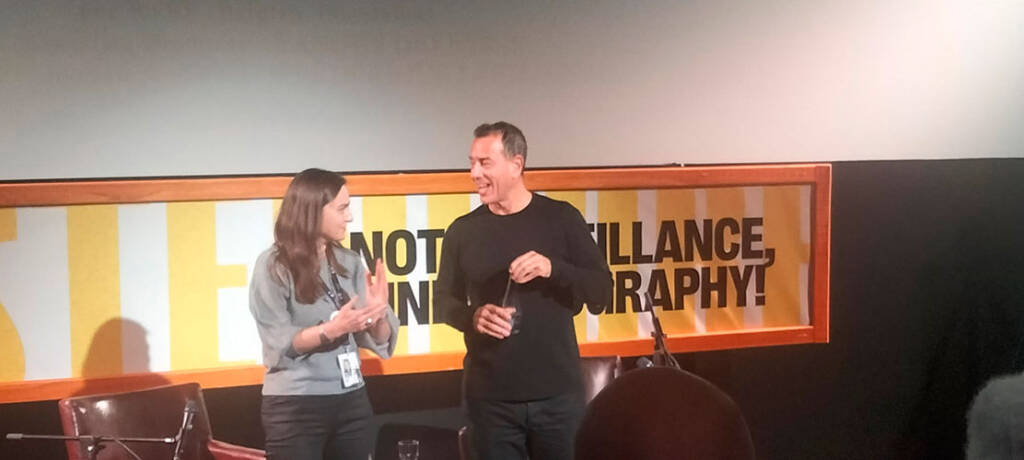
In attendance and also part of Contemporary Trends were also Edoardo De Angelis with a screening of the film Comandante and Giacomo Abbruzzese with his picture Disco Boy, winner of the Silver Bear at the 2023 Berlinale. There was no shortage of established filmmakers from the Serbian motherland, such as Vladimir Perišić, whose film Lost Country had previously been presented at the Semaine de la Critique in Cannes in 2023, where Jovan Ginic obtained the Best Young Actor Award. What completed the Contemporary Trends was Russian filmmaker Ilya Zhetlyakov’s The Last Motorship, set in a remote village on the Barents Sea, in Arctic Russia.
Meanwhile, as part of the Retrospective programme there were films such as On the Waterfront by director Elia Kazan from 1954, the silent film Greed from 1924 by Erich von Stroheim, The Wishing Tree from 1976 by Georgian director Tengiz Abuladze, and Federico Fellini’s masterpiece 8½.
The 2024 edition also introduced a novel section dedicated to New Auteurs, i.e. filmmakers who participated at the Kustendorf festival with their short-student films, who in the meantime managed to make their feature debut. This initiative connects the past with the present, since also Edoardo de Angelis and Giacomo Abruzzese had once participated to the Short Film competition in Kustendorf, just like the directors of this year’s New Authors: Sonya Karpunina with Desperate For Marriage, Basil Khalil with A Gaza Weekend, Ali Asgari and Alireza Khatami with Terrestrial Verses and Luka Popadić My Swiss Army.
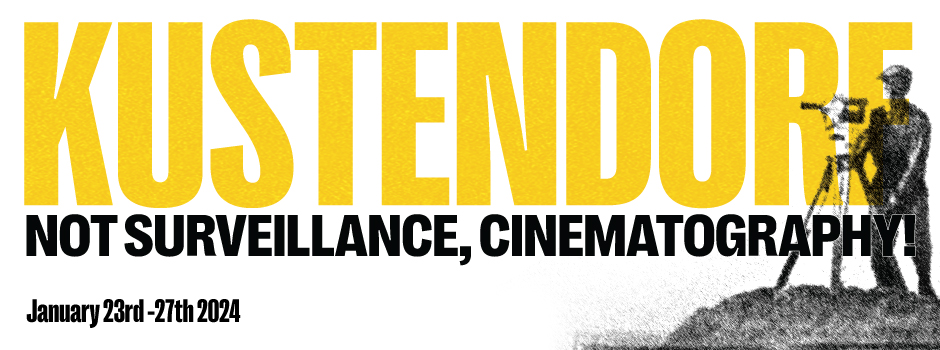
At the heart of the Küstendorf Film and Music Festival is the Competition Programme. This year 17 shorts ran against each other, out of the 536 that were submitted during this edition, made by directors from Serbia, Austria, Finland, Greece, Poland, Sweden, Germany, USA, Egypt, Mexico, Uzbekistan, North Macedonia, India, Czech Republic, Croatia and Russia.
The international jury was made up by Italian writer Sandro Veronesi, Serbian actress Bojana Panić, and Muzafarkon Erkinov, film director from Uzbekistan. The Vilko Filač Award for the Best Cinematography was deliberated by directors of photography Vladan Radović and Michel Amatie, who assigned the recognition to Malin Ingrid Johansson, whilst the Special Mention Award was given to Nikos Kyritis and another Special Mention Award for the Camera went to Tin Ostrošic.
On the podium with the Bronze Egg there was David Gašo, Vivek Rai received the Silver Egg and The Golden Egg went to the film Violet Country directed by Mikhail Gorobchuk. The Closing Ceremony was further feasted with the performance by the Marko Louise band.
A few years ago, French producer Claudie Ossard defined the Küstendorf Film and Music Festival unique in the world, for the proximity it allows between its guests and talent. This trait has proved itself also during the 17th edition, allowing attendees to no only be inspired, but also mingle with the cinephile guests.
All Photos were kindly granted by Damiano Gallinaro and Romina De Simone
Check out more of Chiara’s articles.
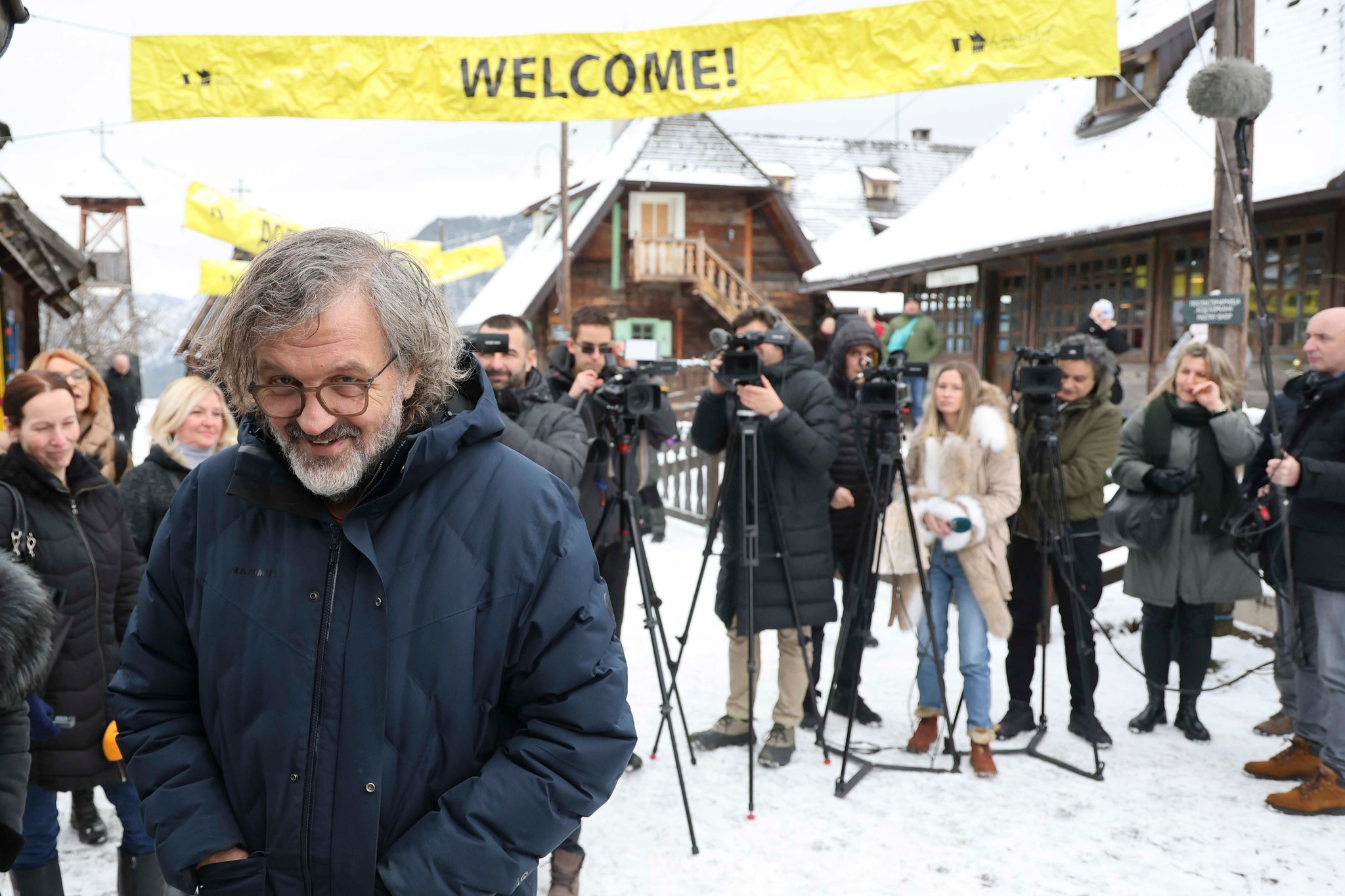
All Films in Competition:
9-5, directed by Maša Šarović from Serbia
Bye Bye, directed by Bowser, Jasmin Baumgartner from Austria
Duck Roast, directed by Jelica Jerinić from Finland
Highway of a Broken Heart, directed by Nikos Kyritsis from Greece
The Creature, directed by Damian Kosowski from Poland
Madden, directed by Malin Ingrid Johansson from Sweden
mise à nu, directed by Simon Maria Kubiena, Lea Marie Lembke from Austria/Germany/France
The Last Shift, directed by Asker Unaev from Russia
Lemon Tree, directed by Rachel Walden from the USA
I Promise You Paradise, directed by Morad Mostafa from Egypt
Hikuri, directed by Sandra Ovilla León from Mexico
On the Silk Road, directed by Sherzod Nazarov from Uzbekistan
Only the Devil Hates Water, directed by Lidija Mojsovska from North Macedonia
Shanti, directed by Vivek Rai from India
Silhouette, directed by Savva Dolomanov from Czechia
Short Cut Grass, directed by David Gašo from Croatia
Violet Country, directed by Mikhail Gorobchuk from Russia

